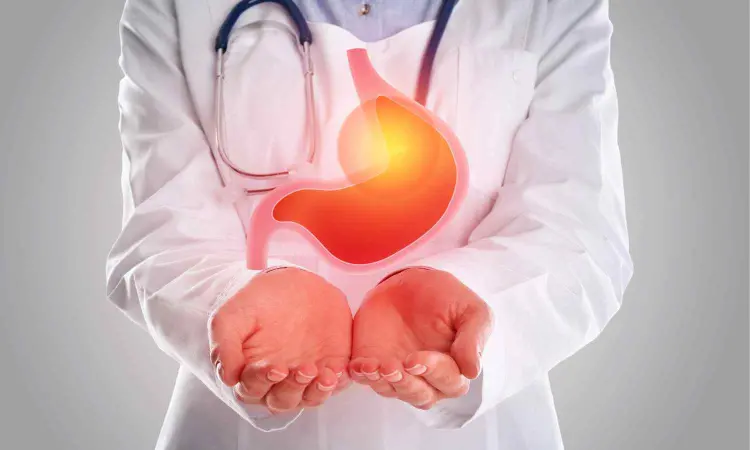- Home
- Medical news & Guidelines
- Anesthesiology
- Cardiology and CTVS
- Critical Care
- Dentistry
- Dermatology
- Diabetes and Endocrinology
- ENT
- Gastroenterology
- Medicine
- Nephrology
- Neurology
- Obstretics-Gynaecology
- Oncology
- Ophthalmology
- Orthopaedics
- Pediatrics-Neonatology
- Psychiatry
- Pulmonology
- Radiology
- Surgery
- Urology
- Laboratory Medicine
- Diet
- Nursing
- Paramedical
- Physiotherapy
- Health news
- Fact Check
- Bone Health Fact Check
- Brain Health Fact Check
- Cancer Related Fact Check
- Child Care Fact Check
- Dental and oral health fact check
- Diabetes and metabolic health fact check
- Diet and Nutrition Fact Check
- Eye and ENT Care Fact Check
- Fitness fact check
- Gut health fact check
- Heart health fact check
- Kidney health fact check
- Medical education fact check
- Men's health fact check
- Respiratory fact check
- Skin and hair care fact check
- Vaccine and Immunization fact check
- Women's health fact check
- AYUSH
- State News
- Andaman and Nicobar Islands
- Andhra Pradesh
- Arunachal Pradesh
- Assam
- Bihar
- Chandigarh
- Chattisgarh
- Dadra and Nagar Haveli
- Daman and Diu
- Delhi
- Goa
- Gujarat
- Haryana
- Himachal Pradesh
- Jammu & Kashmir
- Jharkhand
- Karnataka
- Kerala
- Ladakh
- Lakshadweep
- Madhya Pradesh
- Maharashtra
- Manipur
- Meghalaya
- Mizoram
- Nagaland
- Odisha
- Puducherry
- Punjab
- Rajasthan
- Sikkim
- Tamil Nadu
- Telangana
- Tripura
- Uttar Pradesh
- Uttrakhand
- West Bengal
- Medical Education
- Industry
Gallstones significantly associated with cancers of the stomach, liver and bile duct, kidney, and bladder: Study

This study explores the relationship between gallstones, cholecystectomy, and cancer risk through both observational and Mendelian randomization (MR) methods. The research aims to clarify the inconsistent findings from previous studies regarding the association of gallstones and cholecystectomy with various types of cancers, particularly in Chinese adults.
Gallstone disease, a common gastrointestinal disorder, has seen a rapid increase in prevalence, attributed mainly to aging populations and a shift towards high-fat diets. While cholecystectomy is the standard treatment for symptomatic gallstones, the impact of gallstones and cholecystectomy on cancer risk remains controversial across studies and ethnicities. This study combines a nationwide, large-sample cross-sectional study with a two-sample MR analysis to investigate the possible causal effects.
The observational study utilized data from the REACTION study, involving 259,657 participants aged 40 or older from 25 communities across mainland China. The study collected information on medical history, lifestyle factors, dietary habits, physical activity, and family history of tumors through in-person interviews and questionnaires. The primary exposures were a medical history of gallstones, either with or without cholecystectomy, and the outcomes were site-specific cancers verified by medical records and tumor registry data.
The MR analysis used genetic variants as proxies for gallstones and cholecystectomy to filter unmeasured confounders and avoid reverse causality. Genetic proxies for gallstones and cholecystectomy were obtained from the Neale laboratory analysis of UKB round 2 GWAS. The MR analysis followed three principles: genetic variants should be significantly associated with the exposures, not associated with any confounders, and should influence the cancers of interest completely due to the exposures.
The results of the observational study showed that a history of gallstones without cholecystectomy was associated with a higher risk of stomach cancer, liver and bile duct cancer, kidney cancer, and bladder cancer. Gallstones with cholecystectomy were positively associated with stomach cancer, liver and bile duct cancer, and colorectal cancer. For gender-specific cancers, gallstones were significantly correlated with cervical cancer in women, but not with breast or prostate cancer.
The MR analysis supported the causal effect of gallstones on stomach, liver and bile duct, kidney, and bladder cancer. However, no genetic associations between cholecystectomy and any types of cancer were detected. The MR results confirmed the findings of the observational study for gallstones but not for cholecystectomy.
The study concluded that gallstones are significantly associated with cancers of the stomach, liver and bile duct, kidney, and bladder, both observationally and through MR analysis. The association between gallstones and cervical cancer, as well as cholecystectomy and colorectal cancer, might not be causal. The research emphasizes the need for special attention to individuals diagnosed with gallstone disease due to the potential cancer risk.
The study's strengths include comprehensive analysis of major cancers, a large sample size, and the use of gender-specific MR analysis. Limitations involve the retrospective collection of gallstone and cholecystectomy information, potential reverse causation, exclusion of hematological cancers, and the use of European population data for MR analysis. Future research in diverse populations is recommended to confirm the findings and explore the carcinogenic mechanisms related to gallstones and cholecystectomy.
Reference:
Zhu, Y., Shen, L., Huo, Y. et al. Gallstones, cholecystectomy, and cancer risk: an observational and Mendelian randomization study. Front. Med. 19, 79–89 (2025). https://doi.org/10.1007/s11684-024-1111-5.
Dr Kamal Kant Kohli-MBBS, DTCD- a chest specialist with more than 30 years of practice and a flair for writing clinical articles, Dr Kamal Kant Kohli joined Medical Dialogues as a Chief Editor of Medical News. Besides writing articles, as an editor, he proofreads and verifies all the medical content published on Medical Dialogues including those coming from journals, studies,medical conferences,guidelines etc. Email: drkohli@medicaldialogues.in. Contact no. 011-43720751


